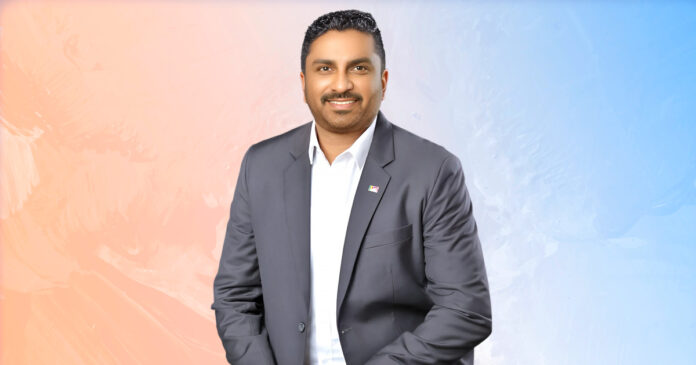In today’s fast-evolving business landscape, leaders must demonstrate resilience, adaptability, and foresight to steer their organisations through uncertainty. Mr Dineshan Sivapalan, Managing Director and Chief Executive Officer of D Exclusive Home Designings, exemplifies these qualities.
As a recipient of the prestigious Global CEO 45 Under 45 Award and numerous other accolades, including the Nelson Mandela Award for Social Responsibility and the Quality Commitment Award in Paris, Dineshan has built a reputation for innovative leadership. Beyond business, he has established the D Foundation for a Healthy World, showcasing his commitment to social responsibility. In this interview, Dineshan shares his insights on leadership, navigating challenges, and positioning his company for global success, providing valuable lessons for aspiring entrepreneurs and business leaders alike.
Global CEO Magazine had an opportunity to talk with Dineshan Sivapalan recently.
Q: Considering the challenges Sri Lankans and businesses have faced over the past few years, what leadership qualities do you believe are essential for navigating these tough times?
A: First of all, thank you for having me here. When it comes to leadership, it’s important to understand that challenges are a constant. We’re not just talking about the last few years, though there have certainly been significant events like the 2019 bombings, the pandemic, and the recent economic crisis. For leaders like us, managing a business always comes with its daily challenges.
Flexibility is key—knowing how to adapt to different circumstances. It’s also about managing your staff effectively, even in tough times, and understanding risk management. Business natures vary from sector to sector, but at the end of the day, as leaders, we need to know our strengths and weaknesses to successfully navigate challenges.
In our case, we’re not just selling products, we’re creators and manufacturers. During these challenging years, it was difficult to get materials, hire staff, and deal with banking issues like loans and overdrafts. But knowing how to manage these factors, knowing your limits, is what keeps a business like ours afloat. Leaders need to be role models for their teams. From the moment you start a business, challenges are inevitable, but the key is to be smart and flexible enough to adapt.
Q: You’ve faced several issues over the past few years, from banking problems to sourcing raw materials. Innovation and adaptation must have played a significant role. Can you share some of the innovative strategies you’ve implemented and the impact they’ve had?
A: That’s a great question. I think back to the pandemic when lockdowns started, and many of us experienced working from home for the first time. We explored new technologies that made remote work possible, and that has continued to evolve since then.
We’ve embraced technologies like AI and advanced data management to streamline our operations. From monitoring projects to handling shipments, everything is now integrated and easily accessible, even when we’re not physically present. The same applies to our accounts and inventory systems.
It’s also about ensuring our staff stay up to date with new technologies. As leaders, we have a responsibility to train our teams and keep them informed. If we don’t have the expertise ourselves, we need to seek advice from others. Technology makes running a business smoother, but we must continuously adapt to these advancements.
Q: You mentioned earlier that you have a strong team behind you. What leadership qualities do you believe are essential for managing your team, particularly in times of uncertainty?
A: It’s important to build a good relationship with each team member and understand their individual strengths. Leadership is about ensuring a positive and friendly working environment. If staff enjoy their work and feel valued, they’ll deliver their best performance.
I’ve worked in companies where I dreaded going to work because of the atmosphere, and I’ve made sure not to replicate that experience. Our staff should wake up each morning looking forward to the day ahead. It’s about creating an enjoyable environment and having long-term plans that are communicated clearly to the team.
You also need to set realistic targets and maintain open communication. If the company is facing challenges, you can’t just tell your staff everything is fine. They need to be engaged and involved in the process.
Q: Sri Lanka is undergoing significant reforms and restructuring. What is your view of the business environment here over the next five years?
A: The next five years look promising, with a focus on sustainable growth, innovation, and global integration. These are the pillars that will support businesses moving forward.
Sustainability is crucial; it’s not about starting a business today and closing it tomorrow. You need long-term goals. At the same time, innovation and technology must be at the forefront. We also need to be more globally integrated, aligning ourselves with international markets and innovations.
Q: Positioning your company globally is a dream for any entrepreneur, but managing local challenges is also essential. How do you balance both and plan to position your company globally?
A: It starts with staying updated. Thorough market research is vital, both locally and globally. You need to respect cultural differences and understand market trends. For example, in industries like textiles or tourism, you need to be aware of peak and off-seasons. This knowledge allows you to plan effectively.
Collaboration is also key. Whether locally or globally, building strong relationships with other businesses and maintaining customer collaboration is essential. It’s not just about selling products; it’s about understanding market demands and adapting accordingly. That’s my approach, and it has helped us remain competitive in both local and global markets.


